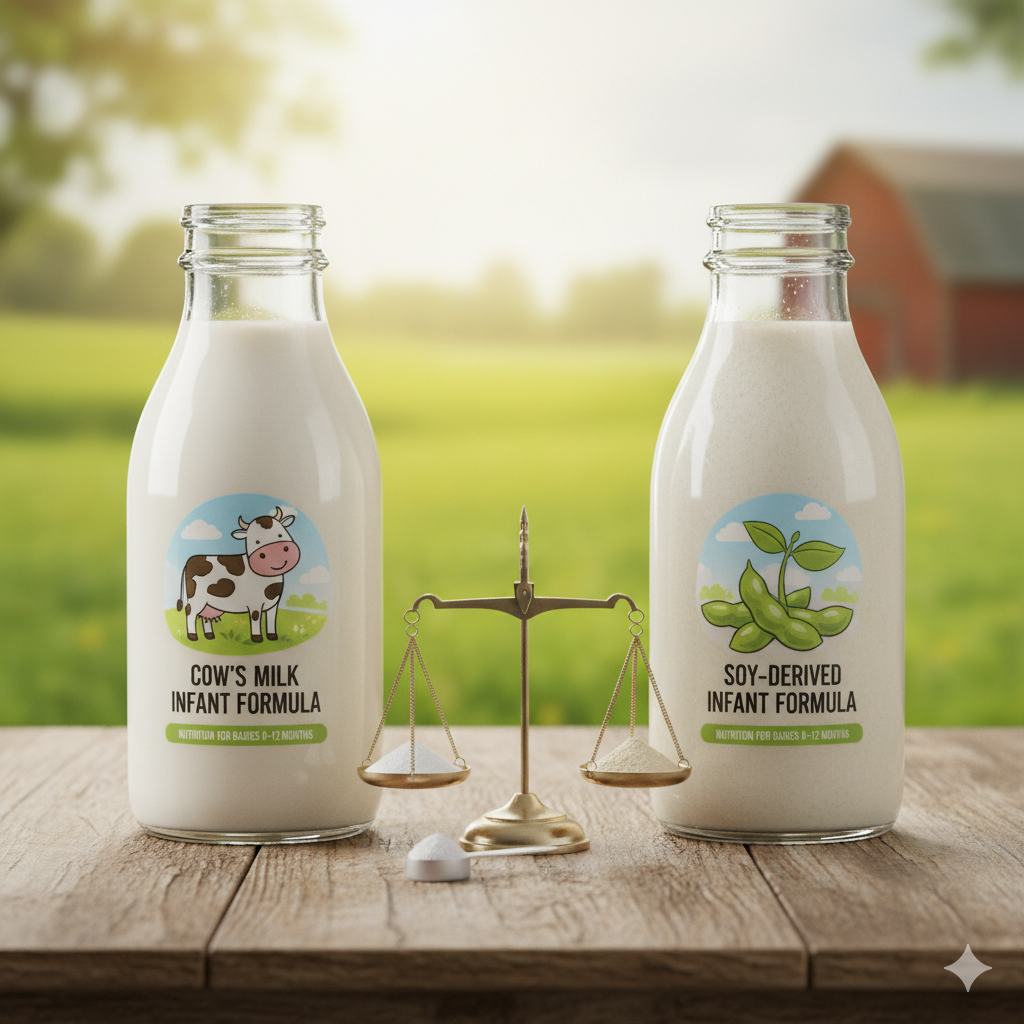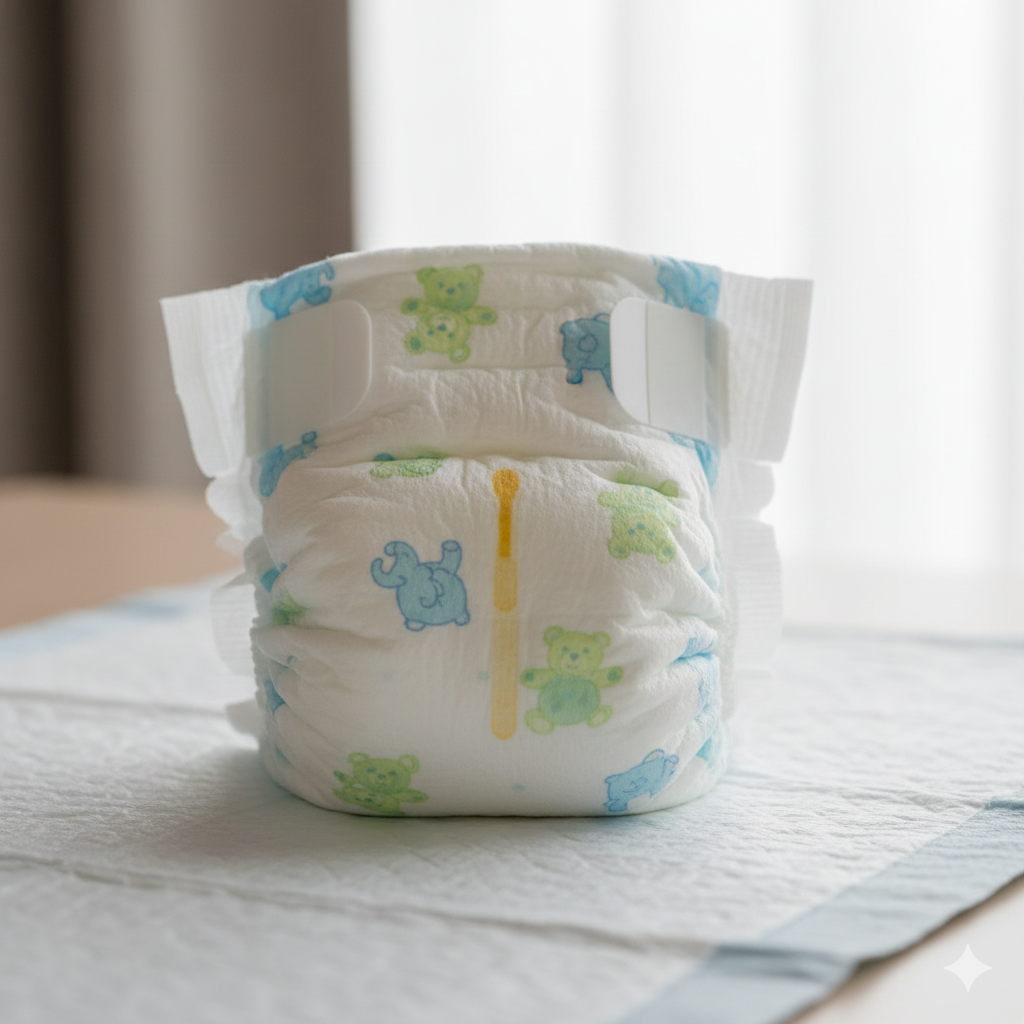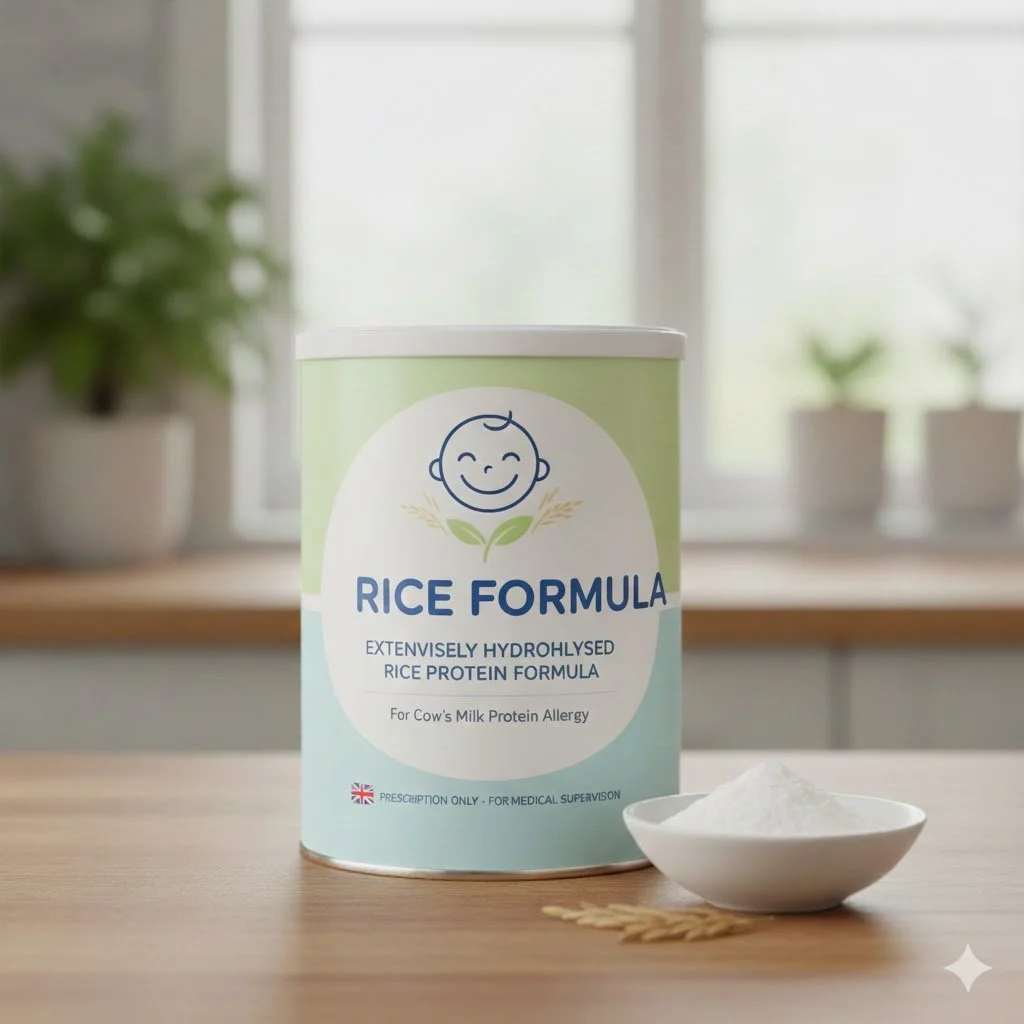Soy-Based Formula is a safe, nutritious, and cost-effective option for infants with IgE-mediated Cow's Milk Allergy (if Soy IgE negative)
(No COI to declare re this post) IgE-mediated cow's milk allergy is a common food allergy among younger children.
In situations where human milk is unavailable, numerous milk alternatives can be considered, each varying in safety, cost, and importantly, taste.
Modified formulas are often unappealing to babies accustomed to human milk, which is high in lactose. A recent review by Abrams et al., published in the Journal of Allergy and Clinical Immunology: In Practice in 2025, supports my long-held clinical belief that soy-based modified infant formula is a safe option for infants, provided the infant is not allergic to soy.
The Bottom Line of this review
The authors conclude that the current guidelines—which push soy to a "third choice" option or ban it for infants under 6 months—may be outdated.
They suggest that Soy-Based Formula is a safe, nutritious, and cost-effective option for healthy infants with IgE-mediated Cow's Milk Allergy, provided the child does not have a specific, separate allergy to soy.
See below for any specific FAQ’s
Frequently Asked Questions
-
Old Belief: Older studies suggested a low-moderate rate of "coallergy" (where a child reacts to both milk and soy), estimating it as high as 10%–14%.
New Findings: These authors argue that the old studies were flawed (retrospective or mixed different types of allergies).
Key Insight: They state there is no biological or chemical basis for cross-reactivity between cow's milk and soy protein because they are unrelated species (one a mammalian milk, and the other a legume protein).
Conclusion: Recent prospective studies show that in infants with IgE-mediated (immediate reaction) Cow's Milk Allergy (CMA), the rate of actual soy allergy is very low or even absent.
-
The Concern: Historically, there has been fear that isoflavones in soy (which look like estrogen) could affect a baby's reproductive development. This is why many guidelines currently say "wait until 6 months."
The Findings: The paper reviews 40 years of use and recent longitudinal studies. It finds "minimal concern" and "no overt toxicity."
Long-term Effects: Comparison studies showed no significant differences in:
Sexual development (puberty onset).
Immune function.
Growth or height in adulthood.
Reproductive history (pregnancy capability).
-
Growth: Modern Soy-Based Formulas (SBF) are fortified with specific amino acids (methionine, taurine, carnitine) and minerals to ensure they are nutritionally complete.
Bone Health: Despite containing phytates (which can inhibit absorption), soy formulas are fortified to compensate for this. Studies showed bone mineral density in soy-fed infants was comparable to that of those fed cow’s milk formula.
-
The Problem with eHF: The paper points out that Extensively Hydrolysed Formula (the standard medical recommendation) is expensive and tastes bad (low palatability). Furthermore, eHF is not 100% safe; there are case reports of children having anaphylaxis to hydrolysed milk formulas.
The Benefit of Soy: Soy formula is significantly cheaper, tastes better, and (according to this review) has a favourable safety profile.
Worried About Allergies? Let’s Help You Get Answers
If your child is showing signs of a food, pollen, or skin allergy, early diagnosis is key. At London Allergy Consultants, our expert team provides trusted, evidence-based care tailored to your child’s needs. From testing to treatment plans, we guide you every step of the way.
London Allergy Consultants
London Allergy Consultants is a leading UK centre for diagnosing and treating food and airborne allergies in children and young people.






Is the use of a Hydrolysed Rice Milk Formula safe and effective for use in infants with Cow’s Milk Protein Allergy?